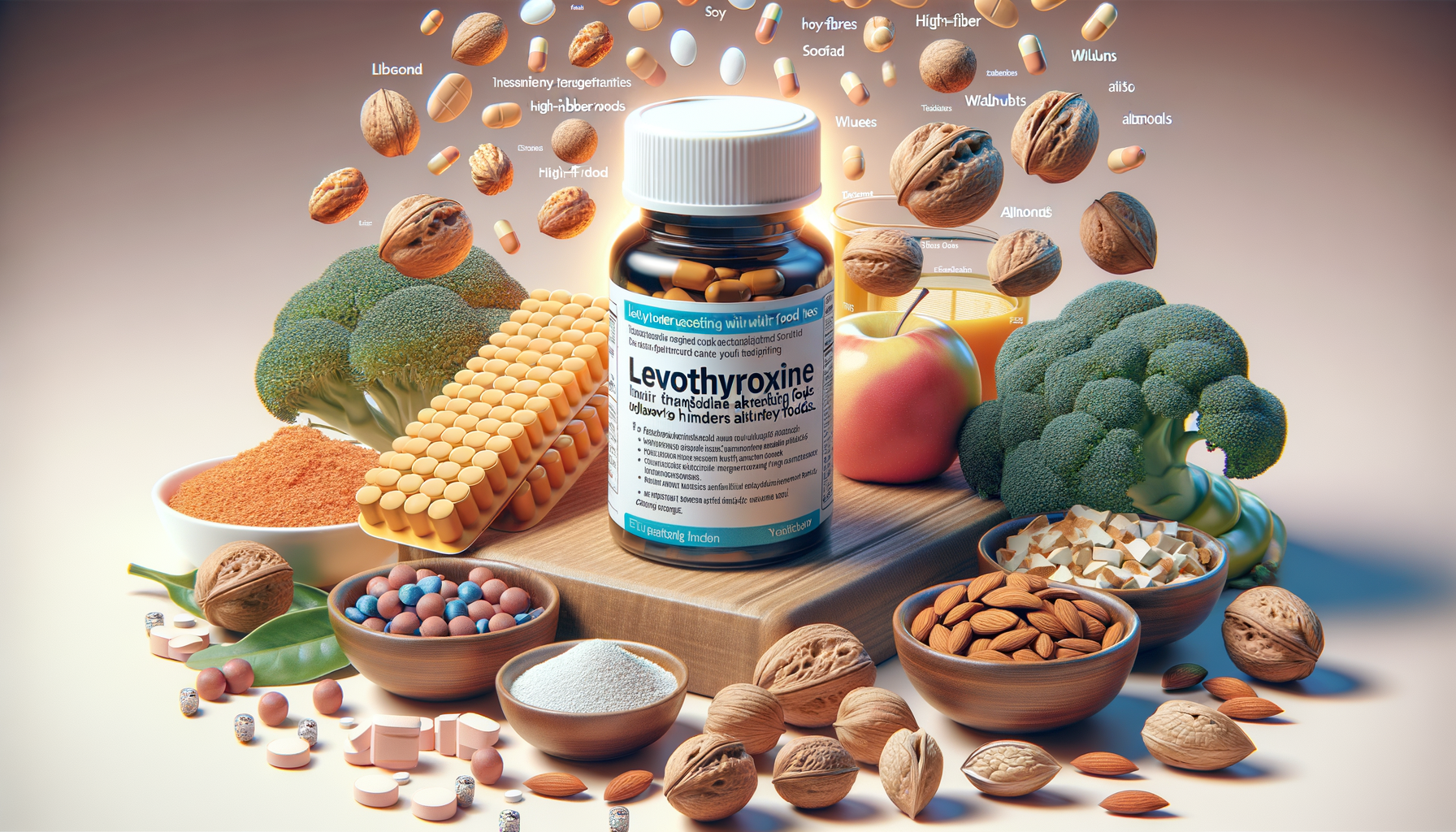Introduction to Levothyroxine
Levothyroxine is a medication commonly prescribed for individuals with an underactive thyroid, a condition known as hypothyroidism. This synthetic form of the thyroid hormone thyroxine (T4) is crucial in helping to restore the balance of hormones in the body, which can significantly improve symptoms such as fatigue, weight gain, and depression. While levothyroxine is highly effective when used correctly, its absorption can be influenced by various factors, including diet. Understanding these interactions is essential for anyone taking the medication to ensure they receive the full therapeutic benefit.
The Role of Diet in Levothyroxine Absorption
When it comes to levothyroxine, timing and dietary habits play a pivotal role in its absorption and efficacy. The medication is best taken on an empty stomach, ideally 30 to 60 minutes before breakfast. This timing helps maximize absorption, as certain foods and beverages can interfere with how the body processes the medication.
Some key dietary factors that can affect levothyroxine absorption include:
- Fiber-rich foods: While fiber is beneficial for overall health, excessive intake can bind to levothyroxine and reduce its absorption.
- Calcium and iron supplements: These minerals can interfere with the absorption of levothyroxine when taken simultaneously.
- Soy products: Soy has been shown to affect thyroid function and may alter levothyroxine absorption.
Being mindful of these dietary interactions can help ensure that levothyroxine is as effective as possible.
Foods to Avoid While Taking Levothyroxine
Several common foods have been identified as potentially interfering with the absorption of levothyroxine. Patients should be cautious about their consumption, especially around the time they take their medication.
Some of these foods include:
- High-fiber foods: Foods like bran, whole grains, and certain fruits and vegetables can slow down the absorption of levothyroxine.
- Walnuts: While nutritious, walnuts may interfere with the medication’s absorption.
- Calcium-rich foods: Dairy products and fortified juices should be consumed at least four hours apart from levothyroxine.
By managing the timing and type of foods consumed, individuals can help ensure their treatment remains effective.
Managing Levothyroxine and Dietary Supplements
In addition to foods, certain dietary supplements can also impact levothyroxine absorption. Patients should be aware of the potential interactions and manage their intake accordingly.
Key supplements to consider include:
- Iron supplements: Often prescribed for anemia, iron can bind with levothyroxine, reducing its effectiveness.
- Calcium supplements: Similar to calcium-rich foods, these should be taken several hours apart from the medication.
- Antacids: Containing aluminum or magnesium, these can interfere with levothyroxine absorption.
Patients should consult with their healthcare provider to develop a schedule that minimizes these interactions, ensuring optimal treatment outcomes.
Conclusion: Optimizing Levothyroxine Therapy
For those managing hypothyroidism with levothyroxine, understanding the impact of diet and supplements is crucial. By being mindful of when and what they eat, patients can significantly enhance the efficacy of their medication. This proactive approach not only supports better health outcomes but also fosters a more informed and engaged patient experience.
Consulting with healthcare providers and possibly a nutritionist can provide personalized guidance, ensuring that dietary habits align with therapeutic goals. This comprehensive strategy can help maintain a balanced thyroid function and improve overall well-being.








